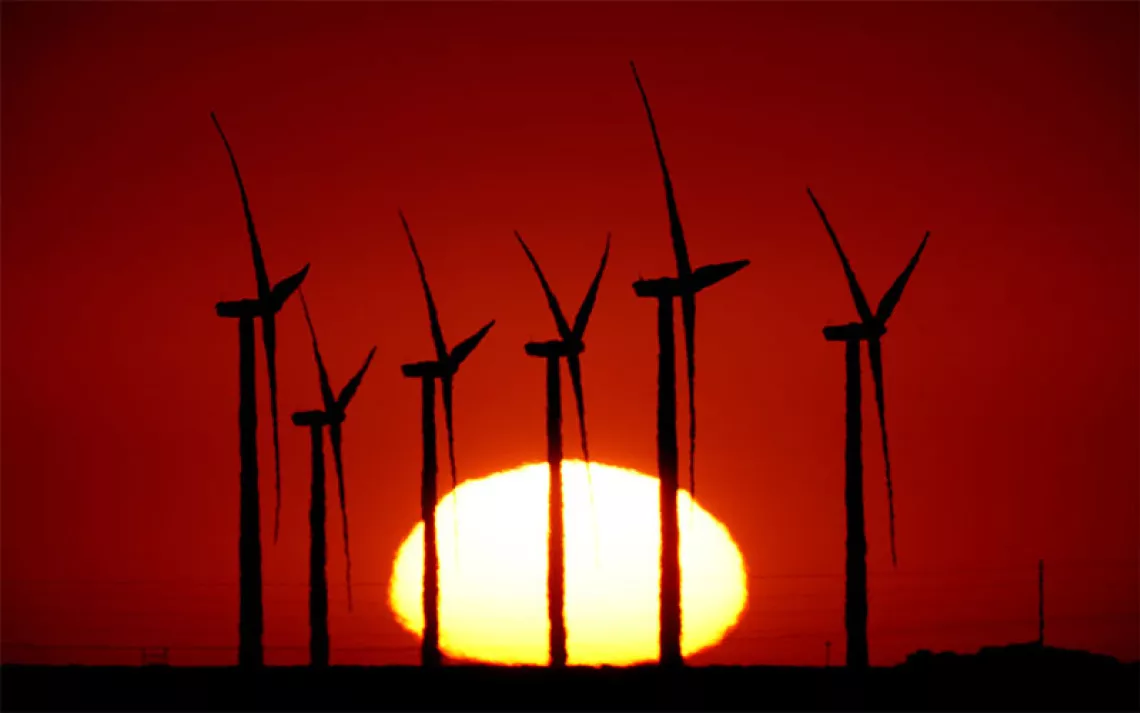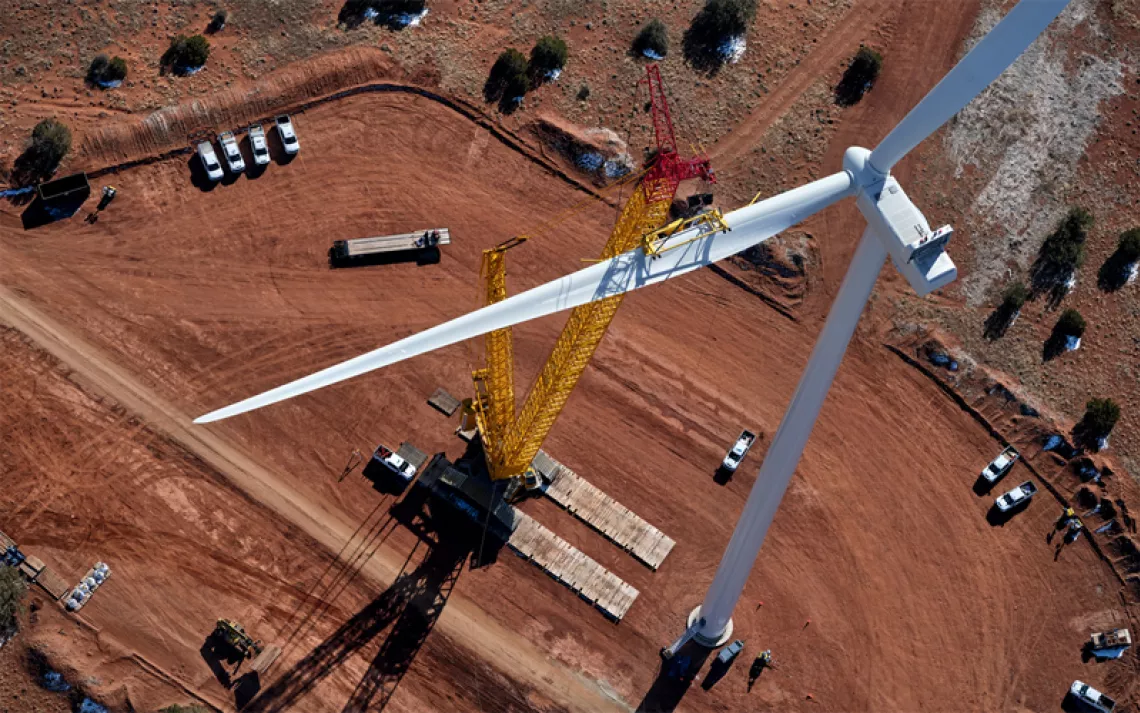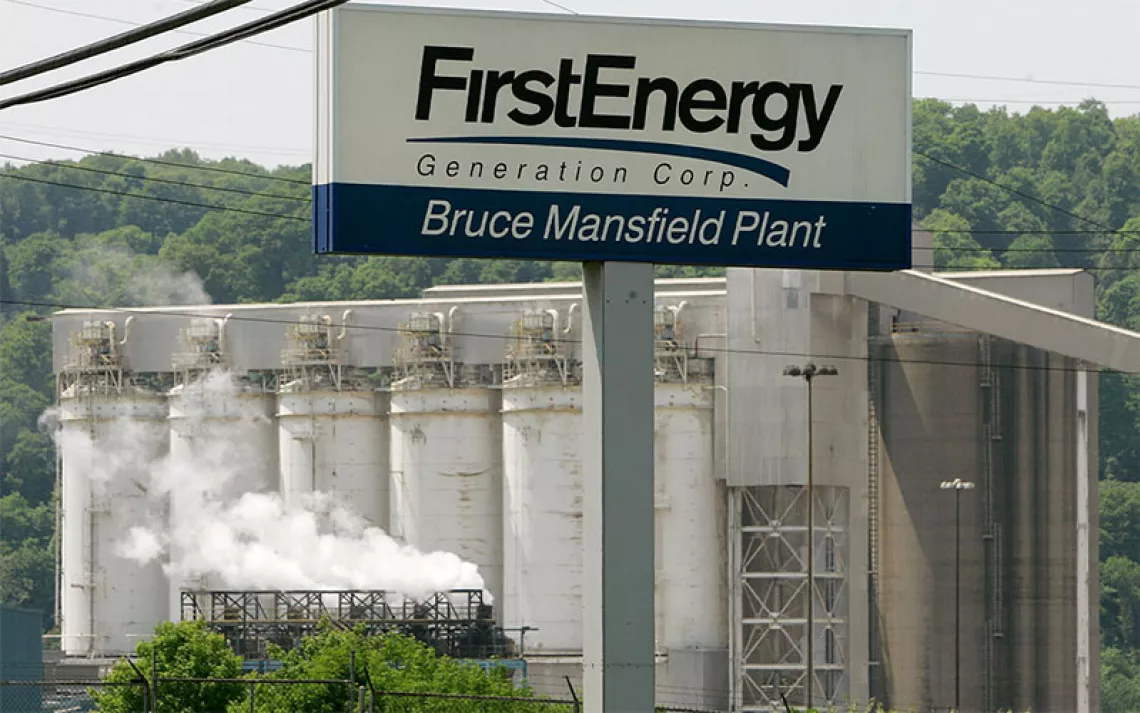From Prison to Production Line, Via Pizza
To reintegrate after prison, you need to envision yourself the way you want to be

Kendall Raymond, manufacturing associate at Proterra, Inc. | Photo by Gabriel Nivera
Proterra makes electric buses. In my section, Station 9, we take care of the front end: We put in the dash, the pedals, the foot switches, and all the levers and stuff that make the bus function. I'm not going to say that it's the most important part of the bus, but if you don't have a steering wheel, how are you gonna drive? The job is supposed to be four days a week, 10 hours a day, but I've been working six days a week. I get overtime pay, health benefits, a 401(k), the whole bit.
It means a lot to me to be doing something for the environment. I've lived in Los Angeles my whole life, but I didn't ever notice the big cloud of smoke that covers our city until I took a trip to Las Vegas with my sister. We were driving back and I'm like, "What's that big cloud?" And my sister's like, "That's where you live. You just don't notice it because you've been living in it for so long."
From then on, I wanted to have a business that was geared toward improving the environment. I want this world to be here for as long as possible for my two daughters, who are nine and seven. My wife and I also have a baby on the way. We want to have grandkids and great-grandkids and all that, and in order for that to happen, something has to change.
Proterra was my first job. My mom passed when I was 15, and I'm 28 now. I've pretty much been in and out of correctional facilities for half my life. I grew up around a lot of gang activity, and I was a product of that environment. But I was also a product of the system: You get charged, you go to jail, and then they give you a public defender who is best friends with the DA. So they're talking about our cases at lunch like, "Oh yeah, just give this guy five years. I'll talk him into it." Racism is a big, big, big part of it. But, you know, that's everywhere.
I was in the Soledad Correctional Training Facility, where I was part of a liaison between the inmates and the prison administration. They came to us and told us about Defy Ventures, an organization that helps inmates reintegrate into society. At first I wasn't really interested, but on the flyer for the kickoff event, they said they were going to have pizza. I'm like, "OK, let's go and have some pizza!"
So I went and listened, and something clicked with me about the program and their mission and what they're trying to accomplish. They asked a lot of questions about our personal lives, because they wanted to know what landed us in the position that we were in. We went through a lot of emotional exercises. People were crying because it made them dig deep.
I went through the whole program. It was a lot of writing. They had us write our eulogies, which was the deepest thing, because when you look at how you are now and then envision yourself in the future—can you envision yourself the way that you want to be?
It turned out that the chief operating officer of Proterra, Josh Ensign, had been involved with Defy and had been to a couple of the events in the prisons. So when I got out, I got an interview. I'm thinking that they're going to ask me about, like, what type of tool I need to use for this or what size bolt for that. But they didn't ask me anything like that. They were just really concerned about my character. They said, "We can teach you what you need to know to work here. The only thing that we want is to have an environment that's like a family. We don't want to bring anybody on board that's going to tear that family apart. So we need to know that you have the right attitude."

Make every day an Earth Day
Get articles like this one sent directly to your inbox.
With this action you affirm you want to receive Sierra Club communications and may vote on policy designated by the Sierra Club Board.
I don't worry much about the security of my job. California has a law saying that starting in 2029, mass transit agencies can only buy electric buses. My goal is to become an engineer. I know that it's going to take a minute, so right now I'm just trying to get information from everybody to figure out how to go forward.
I just told my wife, "Give me three years and I'll buy you a house." That's what I'm focused on in the near future. And I'm really excited that I'm going to be able to go through the whole childbirth experience from the beginning, because I was incarcerated when my first child was born. It's like I got a second chance at life.
This article appeared in the May/June 2020 edition with the headline "A Second Chance."
This article was funded by the Sierra Club's Clean Transportation for All campaign.
Proterra CEO Ryan Popple is a donor to the Sierra Club.
 The Magazine of The Sierra Club
The Magazine of The Sierra Club



